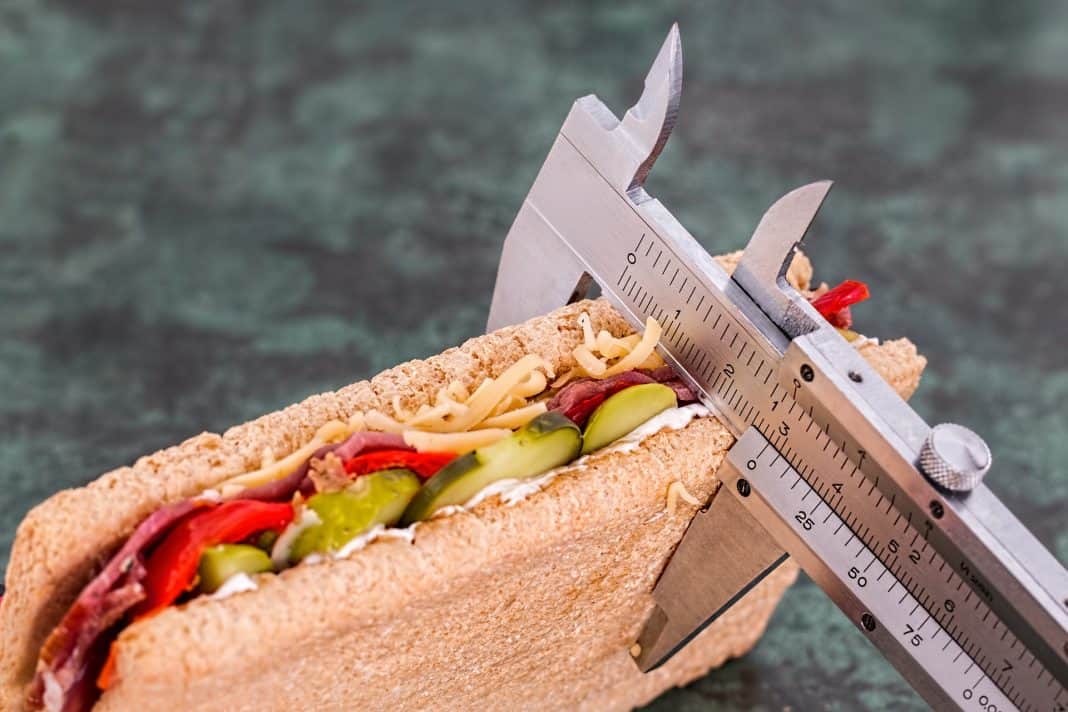I have very fond childhood memories of cracking and eating walnuts, pecans, and pistachio nuts with my father. This simple yet delightful food experience followed me into young adulthood.
That is, until the day I started counting calories.
I remember it like it was yesterday, sitting in front of a computer to complete an assignment in which I was tasked with tracking my calorie intake over the course of three days.
On day one I took in approximately 2,500 calories, largely from fruits and veggies (banana, grapefruit, and carrots), whole grain foods, and, of course, nuts.
By day two I’d clocked in about 2,000 calories, followed by another 1,500 calories on day three.
Interestingly enough, this seemingly meaningless calorie-tracking assignment actually led to my creating calorie deficits for no apparent reason. I wasn’t even trying to lose weight–it was all psychological!
I instinctively started eliminating nuts and other beneficial foods from my diet simply because they were relatively high in calories, but this only compounded the problem. In just three days, I’d become totally obsessed with the idea of calorie counting to the point that I began emphasizing calorie restriction at the expense of nutrition.
I was an undergraduate student then, but today I know a whole lot better. I’ve since reintroduced those walnuts, pecans, and pistachio nuts into my diet, along with a host of other nutritious high-calorie foods.
Unfortunately, many people aren’t as keenly aware of the potential flaws of calorie counting, especially when it comes to weight loss. In fact, numerous dieters and weight watchers are totally obsessed with the notion of calorie counting, often to the point where good nutrition no longer matters.
I can’t tell you how many times I’ve seen people shun a 200-calorie portion of nuts or a 150-calorie portion of carrots, opting instead for a 100-calorie cookie or snack pack because of the calorie difference.
Whether it’s pretzels, fruit juice, flavored waters, baked chips, low-fat ice cream, or fat-free salad dressings, devoted calorie counters now have unlimited access to “low-calorie” products. And many people unknowingly perceive these foods as healthier solely because they’re lower in calories.
Now, I’ll be the first to admit that successful weight loss can only be achieved by creating calorie deficits.
The logic here is pretty straightforward.
There are 3,500 calories in one pound of fat; thus, if you want to lose weight you must create a 3,500-calorie deficit per pound. As an example, a daily restriction of 500 calories will lead to a weight loss of one pound a week.
Still, while losing weight is primarily a matter of creating deficits, you can successfully manage your weight and substantially improve your health by simply eating a wide range of nutritious foods.
Remember: The body craves nutrients, not calories.
When it comes to healthy eating in general, a common misconception is that calorie control alone is key, which often leads people to focus solely on counting calories.
In reality, creating calorie deficits will almost always lead to short-term weight loss. However, obsessing over calories may cause you to lose sight of good nutrition, thereby inadvertently starving yourself of valuable health-promoting nutrients.
There are, in fact, countless nutritious foods that carry relatively high calorie counts, such as whole grains, legumes, and healthy fats. These foods also collectively contain all-natural chemicals that can greatly boost your weight loss efforts by revving up your metabolism, optimizing digestion, and reducing fat absorption and storage.
In truth, a diet emphasizing sensible portions of such high-quality foods will likely eliminate the need for calorie counting altogether.
Indeed, eating a diet that’s rich in high-fiber carbohydrates, healthy fats, and lean protein can substantially boost your body’s natural fat-burning mechanisms while also helping to reduce cravings, curb hunger, and control appetite. These actions make it much easier to eat less and ultimately lose more weight.
I can personally attest to this, as I’ve been able to effortlessly manage a healthy body weight for years by simply tracking my daily servings of veggies, fruits, whole grains, healthy fats, and lean protein, as opposed to just counting calories.
A 200-calorie portion of walnuts will always be more nutritious than a 100-calorie snack pack.
At the end of the day, it’s important to eat sensibly by keeping tabs on both your calorie and nutrient intake. Exercising portion control is also critical, as too much of a good thing can surely lead to weight gain and other health problems.



